Your program
Chemistry at HAN gives you the science and much more. Intercultural awareness. Communication skills. And lots of practice in the lab.

Chemistry: program in brief
The BSc in Chemistry at HAN gives you the fundamentals of chemistry. You also follow subjects like analytical chemistry, organic chemistry and polymer chemistry.
Dive straight into practice in the chemistry lab. From day 1. Work on group projects. Solve real-life problems. Boost your problem-solving skills. And fine-tune your communication skills.
Finally, you gain valuable professional experience. In short, a BSc in Chemistry at HAN opens doors to a rewarding international career.
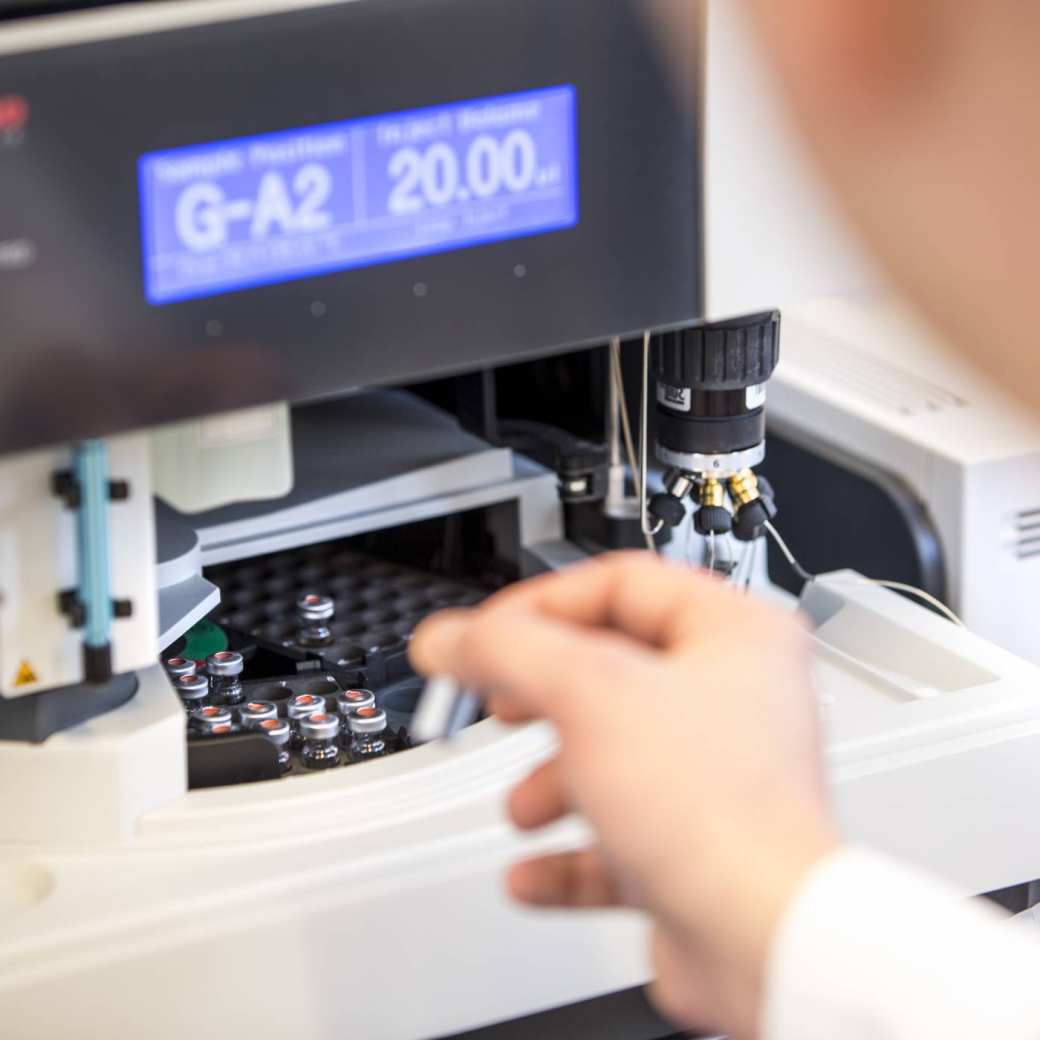
Meet lecturers & students
Get an inside view of the Chemistry program at HAN. Become a student for a day, join a sample lecture or meet 1:1 with a lecturer or student online. We are currently offering the following activities:
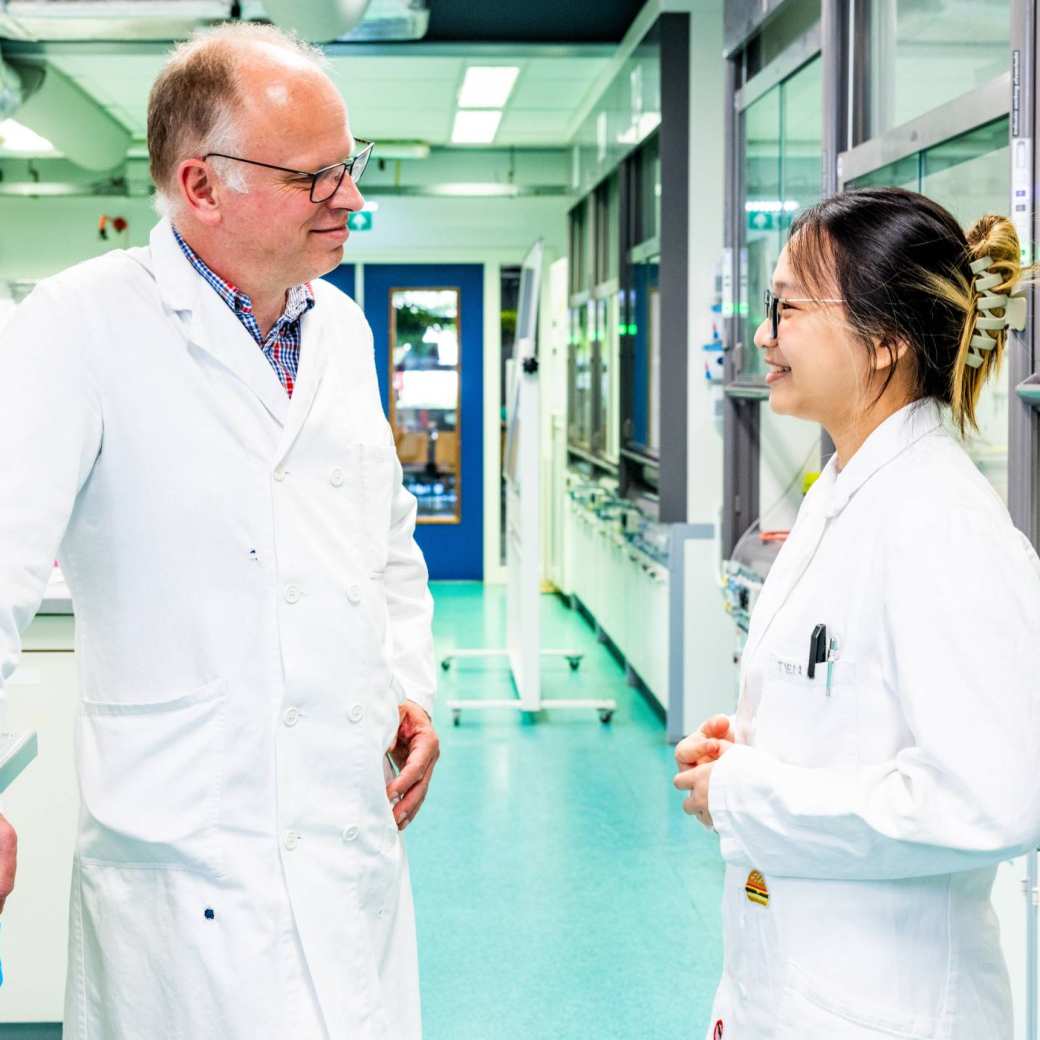

Solid foundation
The first 6 months you study with Life Sciences students. Together you learn to master all the important basics. After that it’s pure Chemistry. Analytical, organic and polymer chemistry. Not only that, you’ll also learn how to do your own research in the lab. In small groups, with fellow students from all over the world.
Theory & Practice
Theory and practice come together in this Chemistry program. Each week you learn about the subjects in lectures and tutor classes. You use this theoretical knowledge directly in the lab, where you spend at least 1 full day per week. The year is divided into 2 semesters. Each semester you get an introduction to a different aspect of Chemistry.
1st-year courses
Learn about biology, chemistry, organic chemistry, polymer chemistry and much more.
Academic calendar
The academic year runs from September to August. In that time you have 42 weeks of education. The rest of the time you have holidays.
PERSONALIZED GUIDANCE
You’re stronger together than alone: that’s why you form a learning team with a group of fellow students. A learning team coach supports and guides the team. Together you address issues that arise in the team. That way you help each other move forward and learn from each other. At HAN you also have a study coach.
Credits
HAN uses the European Credit Transfer System (ECTS). This system is part of the bachelor-master structure. ECTS credits are a measure of the workload of a degree program.
TO THE 2ND YEAR? CHECK YOUR STUDY ADVICE!
At the end of 1st year, you receive study advice. The credits you’ve earned are an important factor in this. Positive advice means you can move on to the 2nd year. Negative advice means you have to stop. That way you don’t waste time on a program that doesn't really suit you.
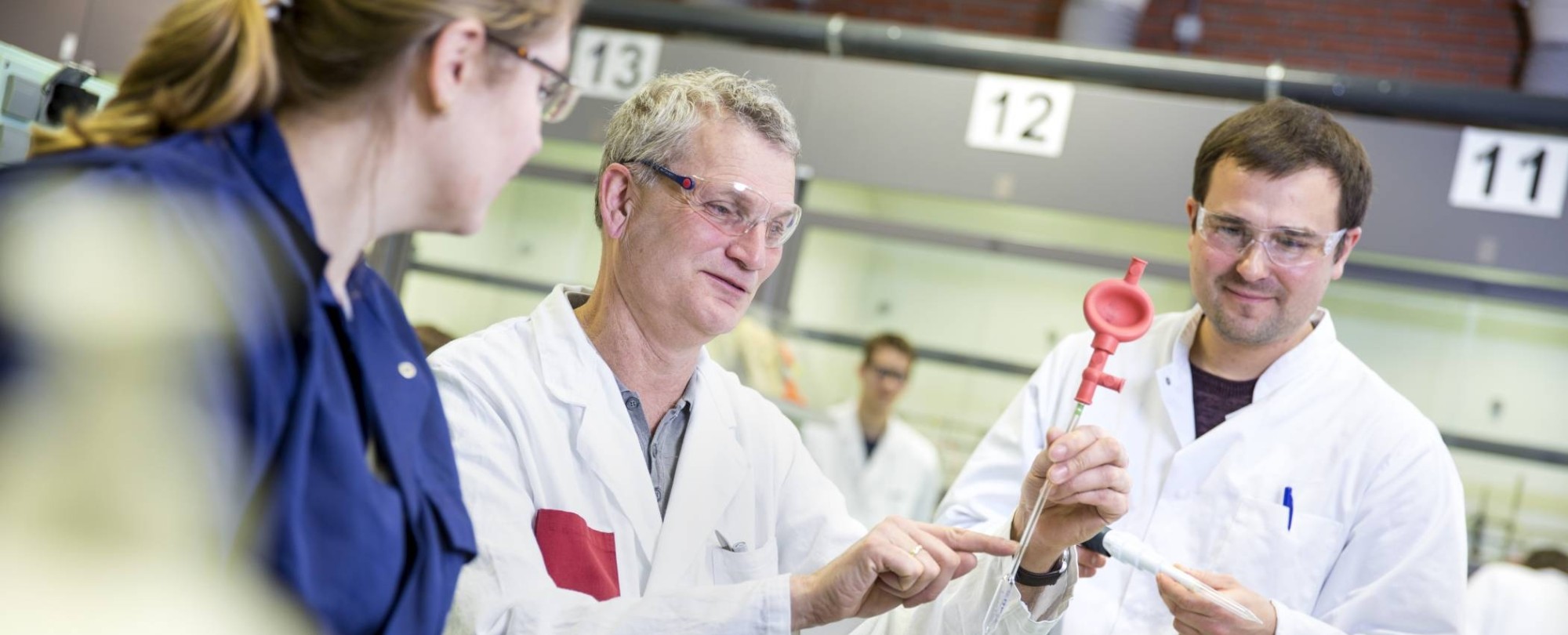
Discover the ins and outs
From the 2nd year, you’re in the main phase of your degree program. You've mastered the basics and know your way around the lab. Now it's time to discover all the ins and outs of the profession.
Subjects
Learn about analytical chemistry, organic chemistry, polymer chemistry and much more.
What suits you best?
You still often work in groups and do a lot of research. Each week you put 5 hours into Analytical Chemistry and 5 hours into Organic Chemistry. That’s a lot of hours in the lab!
By the end of the 2nd year, you’ve had an introduction to all the different areas within the profession. You know how the world of Chemistry fits together and are ready to choose: what will be your specialization?
ANALYTICAL SCIENCES TALENT PROGRAM
Are you up for an extra challenge? Are you ambitious and motivated to get the most out of your studies and yourself? Then apply for a place in the Analytical Sciences Talent Program. This program offers extra study hours and a scholarship. It gives you the edge in the job market.
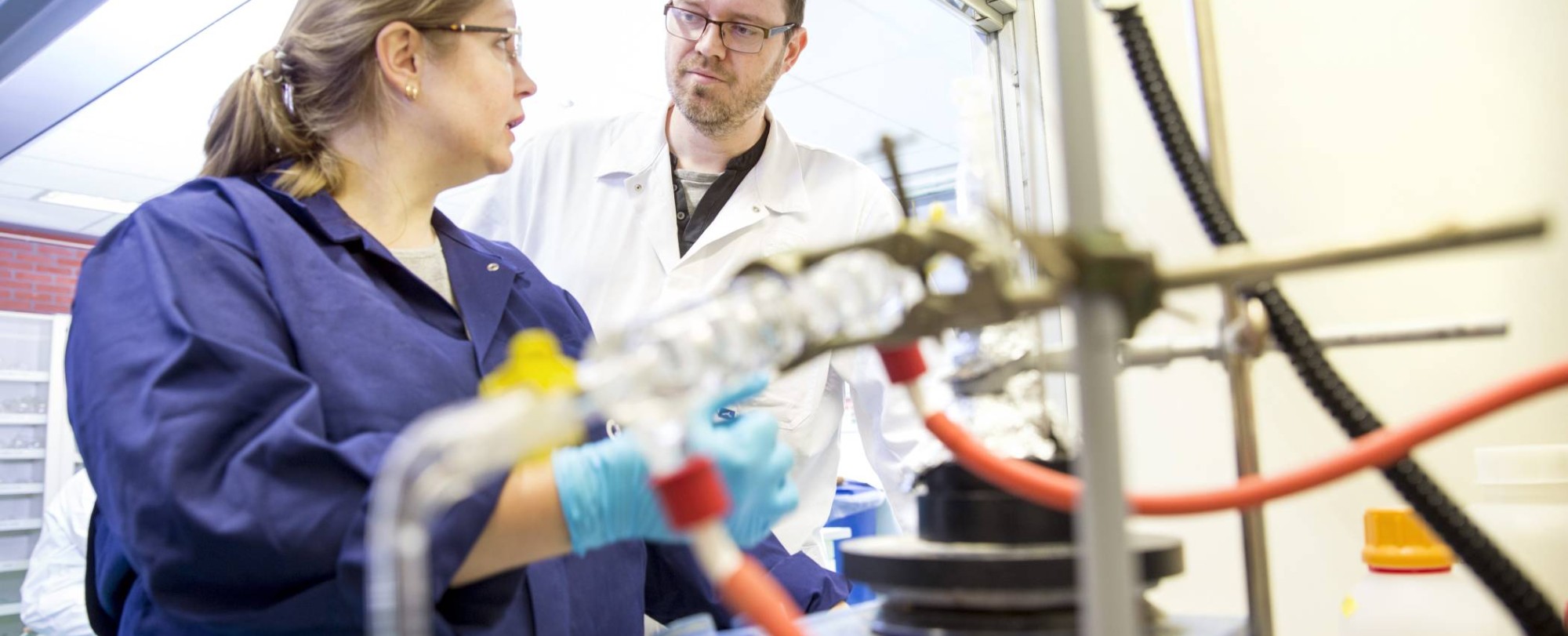
Choose your specialization
In your 3rd year, you choose a specialization: Analytical Chemistry and Organic and Polymer Chemistry. The first semester you take challenging courses on research methods and techniques. Then it's time for an internship: roll up your sleeves at a place you think is really interesting.
Subjects
Subjects in the 3rd year focus on your major: analytical chemistry or organic and polymer chemistry.
What’s your passion?
During your internship, you gain valuable experience in the field at a research institution or company. A great preparation for the start of your international career: you’ll learn a lot, and discover what suits you.
Are you in your element developing materials that give Formula 1 tires even more grip? Or maybe you get excited about devising a smart solution to enable the municipality to build on contaminated land?
Internship
This is the year when you embark on your internship at a company or institute. Where is up to you. Analytical chemistry and organic & polymer chemistry have a broad range of applications: food, pharmaceuticals, the environment or plastics. Gain valuable professional experience working in one of these exciting chemistry fields! A preparation program in the 2nd year gives you all the ins and outs of the internship.
Experience it for yourself!
Want to discover whether Chemistry at HAN is the right choice for you? Experience it for yourself at an Open Day. Our students and staff look forward to meeting you there!

Lab facilities
During your studies, you have access to excellent lab facilities. All the basics as well as advanced apparatus are available. What’s more, HAN has specialized nanotechnology labs. Here you can do research on the interface between biomedical technology and chemistry.
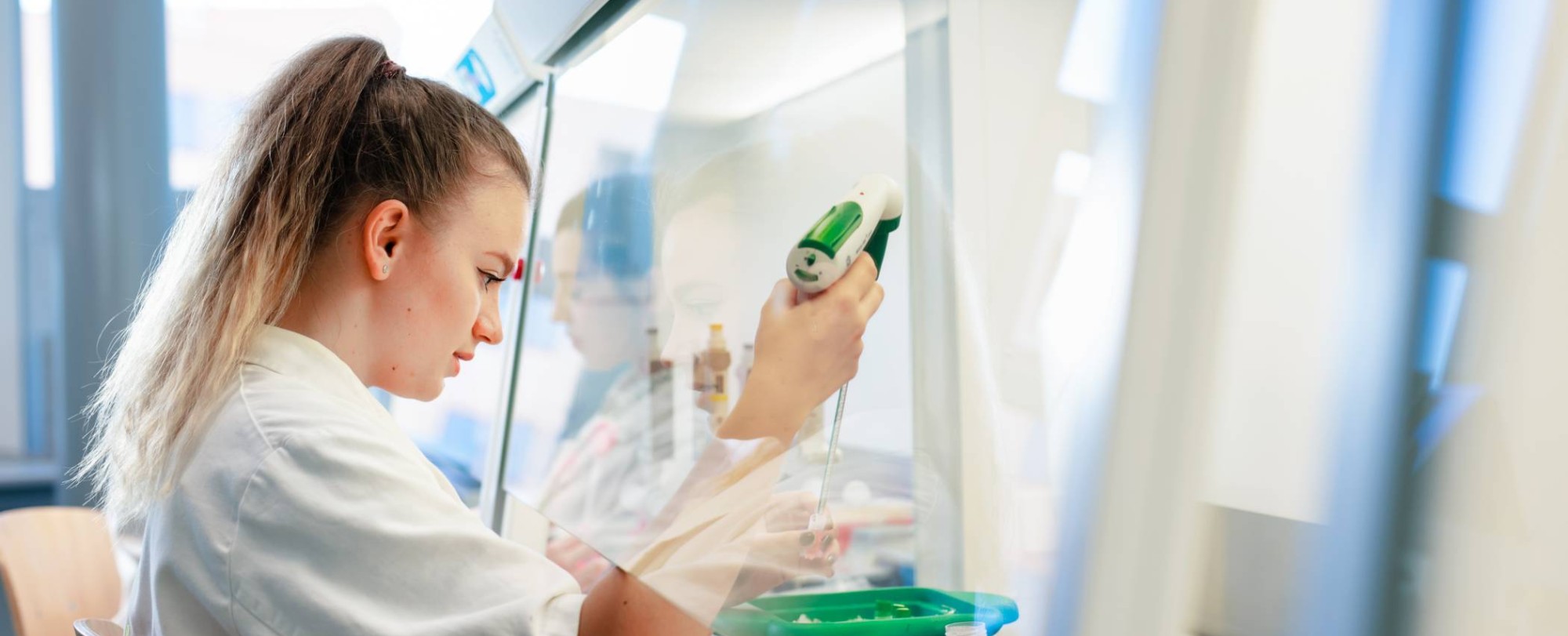
Graduation year
The final year of your BSc in Chemistry. First, choose a subject for your minor. Want to broaden your knowledge? Or go deeper into a specific chemistry subject? The choice is yours during this elective semester. Next, choose your graduation project. That means doing chemistry research for a company or organization.
Minor
HAN offers a minor in Biobased Innovations at the HAN Biocenter. Or what about a minor in bionanotechnology or life sciences? You can also enroll in an exchange course or pre-masters Chemistry program at another university in the Netherlands or abroad. A great option to broaden your experiences even further.
Graduation project
Your graduation project: the final step in your BSc in Chemistry. The project focuses on a major issue in the field of analytical chemistry. To conclude, you give a professional presentation of the results. Your aim? To show you can conduct independent chemistry research. Complete the project at a company, university, research institute or hospital. In the Netherlands or abroad.
Bachelor of Science
After 4 years of study you have earned your Bachelor of Science in Chemistry. You’re now a specialist in analytical chemistry. Congratulations! The program you've completed is accredited by the Accreditation Organization of the Netherlands and Flanders (NVAO). That means you now have an internationally recognized degree. Where are you going to put your skills to work?
Bachelor of Science

Careers
Learn about job opportunities in the field of chemistry. Read about the experiences of alumni. And find out about options for further study.

